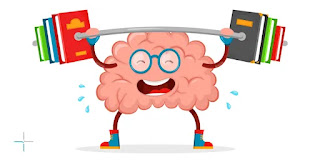Improve Your Memory Skills
Improve Your Memory Skills - Impairment or loss of memory isn't something that you must accept. You can do something about it. Many simple and effective techniques are available for you to utilize if you truly wish to improve your memory. Here are some great ideas.
There is a ton of information you should learn and keep in mind, and it will help you study at a lot of different places. When you do this, you'll avoid associating the information with any one location, and you'll be able to think about it in a more natural way. This is how the brain stores memories. By learning in different areas, the information more easily slips into the long-term memory.
Try paying attention to better your memory. If you aren't one hundred percent focused, then your mind may not retain the full memory. Clear all other thoughts from your mind and give your full attention to what is being discussed and presented. Keep your goals and topic in mind and take notes if you have to.
Memory can be jogged and improved if you try removing yourself from a typical study environment and find a new one. Long term memory can be enhanced with a nice, refreshing change of scene. The change in routine or surroundings will help keep your brain alert, and therefore ready to absorb new information and ideas.
Invest a few moments to relating new information you're hoping to retain to knowledge that is already well-placed inside your memory. Creating a relationship between the two things makes it much easier for your brain to store information and recall it later. An additional benefit to relational exercises is that they actually increase the speed of memorization processes too.
Visit your local library and get books that can help you to improve your memory. You can find books written by experts on memory; these books should be able to provide you with new techniques for your own use.
Take a ginseng supplement to have a better memory. The ingredients are thought to improve brain functioning, and that includes the ability to retain memories. It is also good for your overall health. In addition to ginger, green tea is widely hailed as having positive applications in improving memory.
Passing knowledge onto others often promotes improved memory. If you have a memory that you find you are forgetting, like when your grandson was playing at the park, discuss it with others, remembering as many details as you can. That will reinforce it in your mind, and make it harder to forget.
Try saying things out loud to yourself. Anytime you learn a new name, repeat it verbally. Repeating information out loud can be essential to retaining that memory for a later date. If you can, repeat it out loud over and over again.
Meditation can help some people improve brain elasticity as well as memory function, general health and stress levels. Meditation involves clearing the mind of stray thoughts. It should be practiced in a quiet place, and concentrate on your breathing, clearing out busy thoughts. In order to keep your brain healthy, you should do this for at least thirty minutes every day.
Stress causes memory loss. If you are trying to learn new information, you should be in a relaxed environment. Instead of quickly becoming upset with yourself, allow some time to recall the information.
Put more effort into maintaining existing relationships as well as into building new ones to help fortify your brain against memory loss. Experts have founds that spending quality time with friends and family improves your memory. Even brief interaction with others has a significant effect on how your brain retains information.
To help you remember a new person's name, find a way to associate them with someone else of the same name. You can also make the mental association with someone famous. When you link the new name with familiar knowledge, it will help you remember the new name when you encounter your new friend again.
When studying, make sure you dedicate yourself to learning about that topic, and don't allow yourself too many distractions. Memories that last are stored in your long-term memory. These are the ones that can be recalled much later. It's difficult to store something in your long-term memory if you don't give it your full attention.
You could improve your memory while you study by setting a consistent schedule as you learn the material through a variety of sessions. You need some time to process the information and retain it. Studies have proven that a subject who divided their study time in different sessions memorized the information more efficiently than a subject who crammed the information in one session.
As you can see, there are many things you can do to prevent memory loss. Follow what has been provided in this article, and hopefully you will find that the advice given here is exactly what you need.










